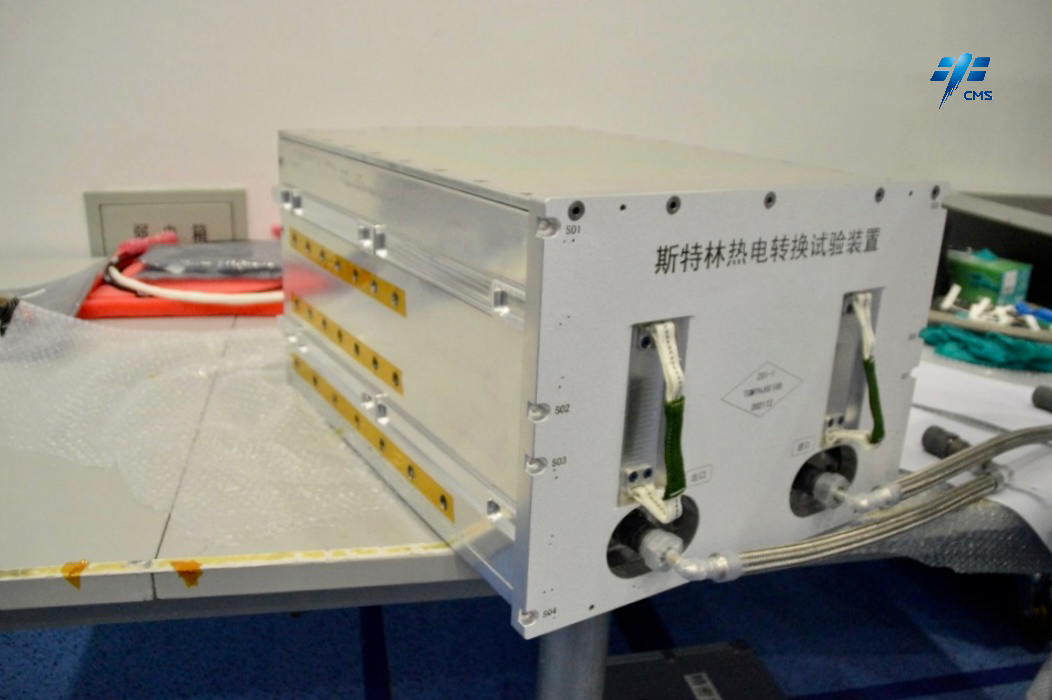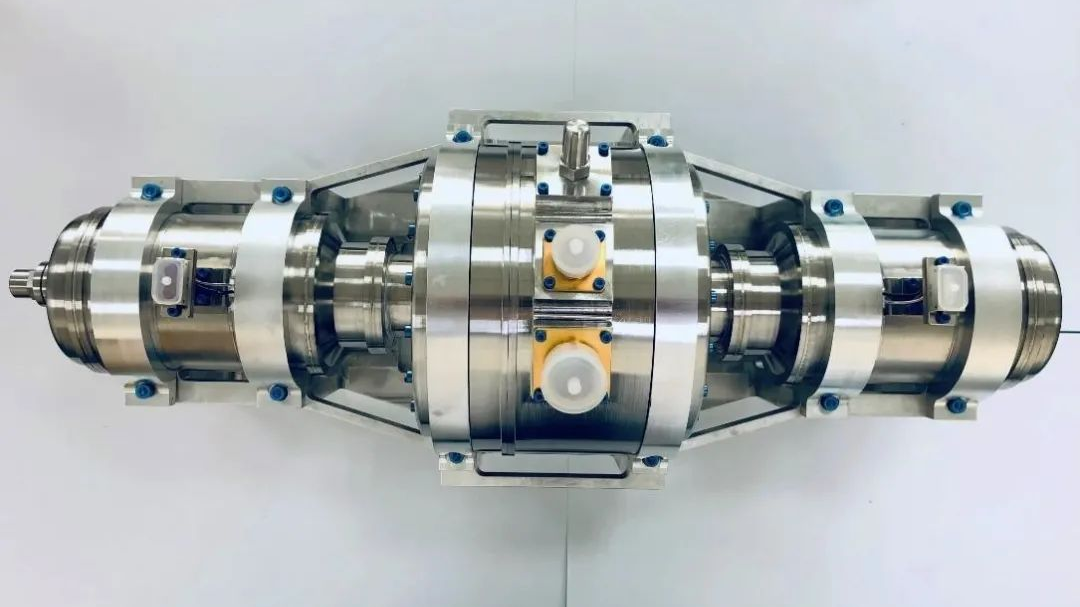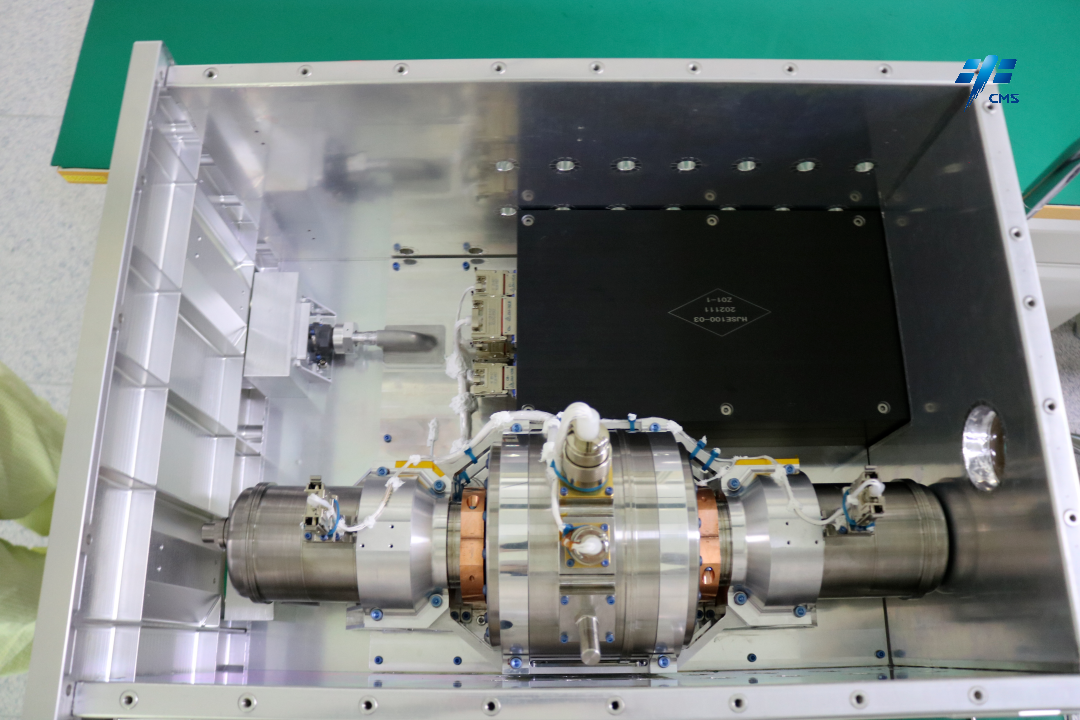
The capped device of Stirling thermoelectric converter. /China Manned Space Agency
The capped device of Stirling thermoelectric converter. /China Manned Space Agency
China's Shenzhou-15 mission crew onboard the China Space Station (CSS) has completed testing of a free-piston Stirling thermoelectric converter, marking the country's first successful in-orbit verification of such technology.
The Stirling thermoelectric converter is a key technology for spacecraft new energy supply, which features simple structure, high efficiency, light weight, fast start-up, small vibration and low noise.
It can efficiently convert thermal energy into electric energy, so as to reduce a spacecraft's dependence on solar energy.
The technology has broad application prospects for future manned Lunar and deep space exploration missions.

The Stirling thermoelectric converter. /China Manned Space Agency
The Stirling thermoelectric converter. /China Manned Space Agency
Successful in-orbit test
The Stirling power converters, developed by the Lanzhou Institute of Physics at China Academy of Space Technology, are installed in the equipment cabinet for basic tests in the Mengtian lab module of the CSS.
Before the test, three in-orbit experiments were carried out in the lab module.
During the test, the device ran stably throughout the whole process and produced better-than-expected performance indicators, with its thermoelectric conversion efficiency reaching an advanced international level under the same isothermal ratio.

The uncapped Stirling thermoelectric converter. /China Manned Space Agency
The uncapped Stirling thermoelectric converter. /China Manned Space Agency
Launched in October 2022, the Mengtian lab module is used for studying microgravity and carrying out experiments in fluid physics, materials science, combustion science and fundamental physics. It has completed more than 50 tasks as planned so far.
The Shenzhou-15 mission crew conducted the third extravehicular activity on Thursday and returned back to the CSS, according to China Manned Space Agency.
Read More: China's Shenzhou-15 crew completes third spacewalk
(Cover via China Manned Space Agency)